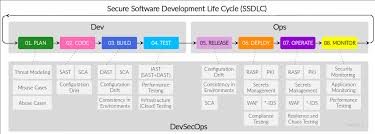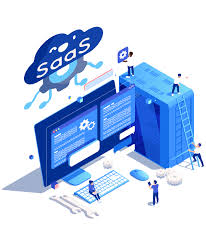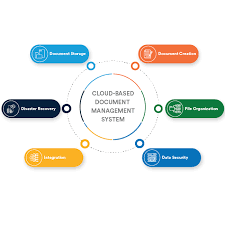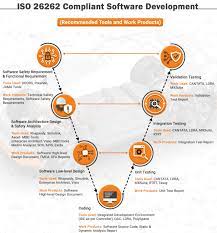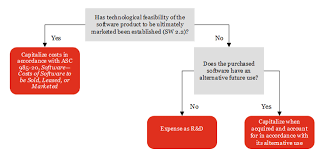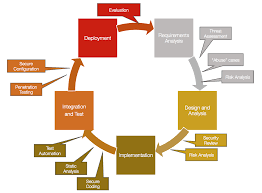Enhancing Data Protection: The Role of Information Security Consulting Services
The Importance of Information Security Consulting Services
In today’s digital age, businesses are increasingly vulnerable to cyber threats and attacks. As technology advances, so do the methods used by malicious actors to exploit weaknesses in systems and networks. This is where information security consulting services play a crucial role in safeguarding organizations from potential risks.
What is Information Security Consulting?
Information security consulting involves assessing, designing, implementing, and managing security measures to protect an organization’s data, systems, and networks. These services are provided by experts who specialize in identifying vulnerabilities and developing strategies to mitigate risks.
The Benefits of Information Security Consulting Services
By engaging information security consulting services, businesses can:
- Identify and assess potential security risks
- Develop customized security solutions tailored to their specific needs
- Implement best practices for data protection and compliance
- Enhance overall cybersecurity posture
- Respond effectively to security incidents and breaches
How Information Security Consultants Can Help Businesses
Information security consultants bring a wealth of knowledge and expertise to help businesses navigate the complex landscape of cybersecurity. They offer:
- Risk assessments and audits to identify vulnerabilities
- Security architecture design and implementation
- Incident response planning and management
- Security awareness training for employees
- Compliance assistance with industry regulations and standards
In Conclusion
Information security consulting services are essential for businesses looking to protect their valuable assets from cyber threats. By partnering with experienced consultants, organizations can proactively address security challenges and ensure the confidentiality, integrity, and availability of their information assets.
Top 5 Benefits of Information Security Consulting Services for Your Organization
- Specialized expertise in identifying and mitigating security risks
- Customized security solutions tailored to the specific needs of each organization
- Enhanced cybersecurity posture to protect valuable data and assets
- Proactive measures to prevent security breaches and incidents
- Compliance assistance with industry regulations and standards
Challenges of Information Security Consulting: Costs, Dependency, Conflicts of Interest, and Measuring ROI
- Costly for small businesses with limited budgets
- Dependency on external expertise may lead to reliance issues
- Potential conflicts of interest if consultants recommend products or services from affiliated partners
- Difficulty in measuring the tangible ROI of information security consulting services
Specialized expertise in identifying and mitigating security risks
Information security consulting services offer a valuable pro in their specialized expertise in identifying and mitigating security risks. These expert consultants possess in-depth knowledge and experience in recognizing potential vulnerabilities within an organization’s systems and networks. By leveraging their specialized skills, they can effectively develop strategies to mitigate these risks and enhance the overall security posture of the business. This focused expertise enables businesses to proactively address security threats and safeguard their sensitive data from potential breaches and cyber attacks.
Customized security solutions tailored to the specific needs of each organization
One significant advantage of information security consulting services is the ability to provide customized security solutions that are tailored to the specific needs of each organization. By conducting a thorough assessment of the organization’s infrastructure, data assets, and potential vulnerabilities, security consultants can develop targeted strategies and implement measures that address the unique risks faced by the business. This personalized approach ensures that security measures are effective, efficient, and aligned with the organization’s goals and compliance requirements.
Enhanced cybersecurity posture to protect valuable data and assets
Enhanced cybersecurity posture through information security consulting services is a critical advantage for businesses seeking to safeguard their valuable data and assets. By working with experienced consultants, organizations can strengthen their defense mechanisms, identify vulnerabilities, and implement proactive security measures to prevent potential cyber threats. This proactive approach not only protects sensitive information but also instills confidence in customers and stakeholders regarding the organization’s commitment to data security and privacy. Ultimately, an improved cybersecurity posture enables businesses to mitigate risks effectively and maintain the integrity of their digital infrastructure in today’s constantly evolving threat landscape.
Proactive measures to prevent security breaches and incidents
Information security consulting services offer the advantage of implementing proactive measures to prevent security breaches and incidents. By conducting thorough risk assessments, developing robust security strategies, and staying ahead of emerging threats, consultants help organizations strengthen their defenses and minimize the likelihood of potential cyber attacks. This proactive approach not only enhances the overall security posture of businesses but also saves them from the costly repercussions of data breaches and other security incidents.
Compliance assistance with industry regulations and standards
Compliance assistance with industry regulations and standards is a significant benefit of information security consulting services. These consultants help businesses navigate the complex landscape of regulatory requirements by providing expert guidance on how to align their security practices with specific laws and standards. By ensuring compliance, organizations can avoid costly penalties, protect their reputation, and build trust with customers and partners. Information security consultants play a crucial role in helping businesses stay up-to-date with evolving regulations and maintain a secure environment that meets industry best practices.
Costly for small businesses with limited budgets
For small businesses with limited budgets, one significant drawback of information security consulting services is the cost involved. Hiring external consultants to assess, design, and implement security measures can be expensive and may strain the financial resources of smaller organizations. The upfront investment required for comprehensive security solutions and ongoing maintenance can be prohibitive for businesses operating on a tight budget. This financial burden might deter small businesses from seeking professional assistance in enhancing their cybersecurity posture, leaving them more vulnerable to potential threats and attacks.
Dependency on external expertise may lead to reliance issues
Dependency on external expertise in information security consulting services may lead to reliance issues for organizations. While consulting experts can provide valuable insights and solutions, relying too heavily on external professionals can create a sense of dependency. This reliance may hinder internal teams from developing their own cybersecurity capabilities and understanding the intricacies of their systems. Additionally, if organizations become overly dependent on external consultants, they may face challenges in adapting to evolving security threats independently. It is important for businesses to strike a balance between leveraging external expertise and building internal capacity to ensure long-term resilience in managing information security risks.
Potential conflicts of interest if consultants recommend products or services from affiliated partners
One significant con of information security consulting services is the potential for conflicts of interest when consultants recommend products or services from affiliated partners. In such cases, consultants may prioritize their relationships with partner companies over the best interests of their clients, leading to biased recommendations that may not necessarily address the specific security needs of the organization. This conflict can undermine the trust and credibility of the consulting services, ultimately jeopardizing the effectiveness of the security solutions proposed. It is essential for businesses to be aware of these potential conflicts and ensure that consulting engagements are transparent and focused on delivering unbiased and objective advice to enhance their cybersecurity posture.
Difficulty in measuring the tangible ROI of information security consulting services
One significant con of information security consulting services is the difficulty in measuring the tangible return on investment (ROI) of such services. Unlike some other business investments where ROI can be easily quantified in terms of increased revenue or cost savings, the benefits of information security consulting are often more intangible and challenging to measure. It can be complex to attribute specific financial outcomes directly to security measures, making it harder for organizations to justify the costs associated with these services based solely on traditional ROI metrics. This lack of clear ROI measurement may present a hurdle for businesses seeking to evaluate the effectiveness and value of their information security consulting investments.



